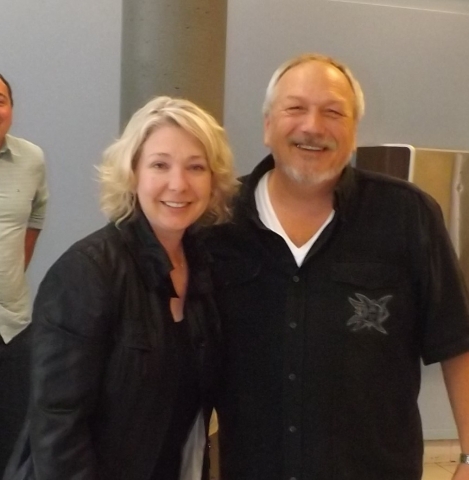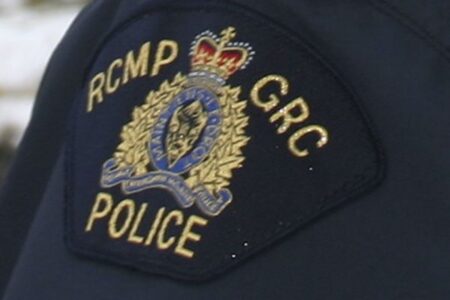Minister`s visit to Lemon Creek meets with mixed reviews
A visit to the Lemon Creek spill site by B.C. Environment Minister Mary Polak on Aug. 30 has not been met with universal approval from local residents.
Polak spent several hours touring the area with RDCK chair John Kettle, who said meetings they held were in camera (not open to the public) because of ongoing litigation surrounding the spill, adding they want any debriefing to come from the Emergency Operations Centre.
“I commend the minister for coming out … and I look forward to good things to come when the final analysis is put forward,” Kettle said. “Regional districts are set up to manage local government – we’re not necessarily professional mangers of disasters. We can hold the line for a time, but we expect the province to come in and provide some relief.”
Kettle added that he, himself, took a drink from Lemon Creek during the tour.
He also confirmed that the Recovery Centre in Winlaw has now been closed, explaining that, while he understands there are ongoing concerns, there are mechanism in place for residents to seek redress, and, “at some point, we have to get back to normal”.
“This is an issue that is going to burn in the hearts and minds of some of those people forever.”
After the creek tour, Polak met at the West Kootenay Regional Airport in Castlegar with members of the local Liberal riding association, after speaking to media representatives from the Castlegar Source and the Castlegar News.
Polak explained she met with the communications coordinator contracted to deal directly with locals, Jonathan Lok, as well as regional district directors to discuss, “some of their concerns about how things unfolded initially, as well as how they’ll move forward”.
“(I got to) hear from them about, not only their own experiences, but what they’ve heard from residents.”
When asked by the Castlegar News‘ Jim Sinclair why she took so long to visit the site, she said it was an intentional decision.
“When you have a crisis like that unfolding, it can be quite unhelpful to bring in a minister,” she said. “It’s a distraction, and you want people focussing on the job at hand, which is managing the crisis.”
She also apologized for her poor choice of words when she said information is “very fluid” in the beginning stages of crisis management, changing the verbage to “constantly changing”.
And why she didn’t meet with residents?
“Strictly a matter of time – we had the day to get in and out,” she said, but later indicated her ministry would welcome calls from local residents, either to assist them with their concerns or direct them to the agency that can.
“It’s often a challenge for people to know where to direct a concern, especially with multiple, overlapping jurisdictions,” she said.
When asked about the removal of potable water from the recovery centre and IHA’s lifting the the “do not use” restriction on impacted waterways, she said that’s not her jurisdiction.
“In terms of decisions around human health, that’s completely the jurisdiction of Health (IHA),” she said.
As for what’s next, she said they’ll be keeping a weather eye on the situation.
“The monitoring will go on as long as it needs to, and we’ll go from there,” she said. “We can’t set a target deadline on that.”
Finally, she expressed her appreciation for the locals who stepped forward to manage the crisis as it unfolded.
“I really do think it’s important to express, in a really tough situation, responders did tremendous work in overcoming obstacles that presented themselves,” she said. “I would want to leave without expressing a big ‘thank you’.”
Not all residents, though, appear satisfied with Polak’s visit or her ministry’s response.
For example, local Recovery Centre volunteer (who also served as contracted volunteer coordinator for a brief period) John Wittmayer expressed his disappointment in a Facebook post Sunday.
“On the morning of the day the Recovery Centre closed, last Friday, we were suddenly informed that Mary Polak, Minister of Environment, “might” drop by,” Wittmayer wrote.
“We had absolutely no notice to be prepared for the exact day of her visit, to get community involvement on board, to get organized enough to offer a basic “Q and A” session for our community.
“Meanwhile, we were in the process of stripping maps, data, and posters off the walls, packing away all the literature we distribute, watching the one and only potable water tank and shower facilities being picked up and carted away, and closing down shop for a lack of funding and political will.
“ This is how the Provincial Government and her Ministry shows concern for the citizens of Slocan Valley. I have struggled with my own personal cynicism over this fiasco, but I must say, that the lack of compassion and concern over the way this community has been impacted by this event, let alone the blatant disregard for fish, bird, and wildlife impacts, the systematic way in which MoE continues to diminish the event and propagandize to their benefit, leads me to only one conclusion. Canada isn’t a country under this Provincial Government, it is a business.”


























Comments